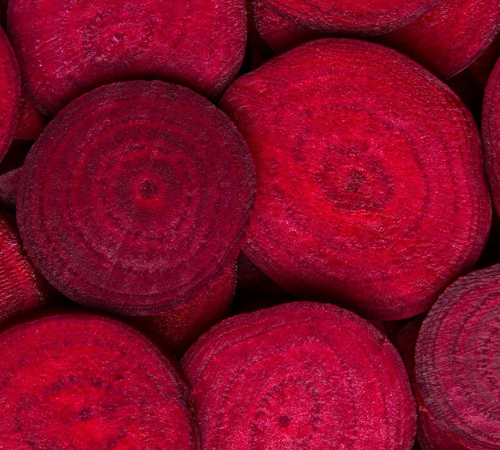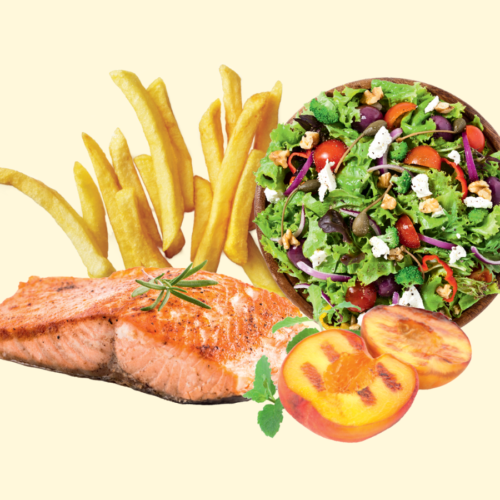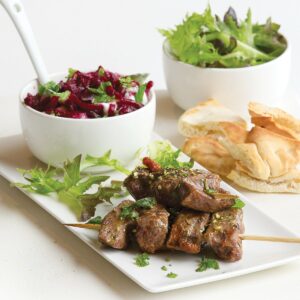
Recipe consultant Phil Mundy looks at the difference between farmed and wild salmon to see which is the healthier option.
Farmed salmon tends to contain more fat than wild, mainly due to a higher-calorie diet and different swimming habits – wild salmon swim vigorously upstream, whereas farmed salmon lead less active lives in pens.
Indeed, a recent analysis showed farmed salmon contains three times as much fat as wild, although this isn’t necessarily bad news for the consumer as it contains far more omega-3 fats.
The difference in fat content also affects the texture and taste of salmon, however, so farmed and wild salmon will have variations in flavour (although this will be masked if you buy prepared fish that has had flavours added to it).
Ultimately, the choice is yours, but always make sure the salmon you buy comes from a sustainable source.
Article sources and references
- Jeffery A Foran, et al. Quantitative analysis of the benefits and risks of consuming farmed and wild salmon.J Nutr . 2005 Nov;135(11):2639-43. doi: 10.1093/jn/135.11.2639.https://pubmed.ncbi.nlm.nih.gov/16251623/
- Blanchet, C., Lucas, M., Julien, P. et al. Fatty acid composition of wild and farmed Atlantic salmon (Salmo salar) and rainbow trout (Oncorhynchus mykiss). Lipids 40, 529–531 (2005).https://doi.org/10.1007/s11745-005-1414-0
www.healthyfood.com










